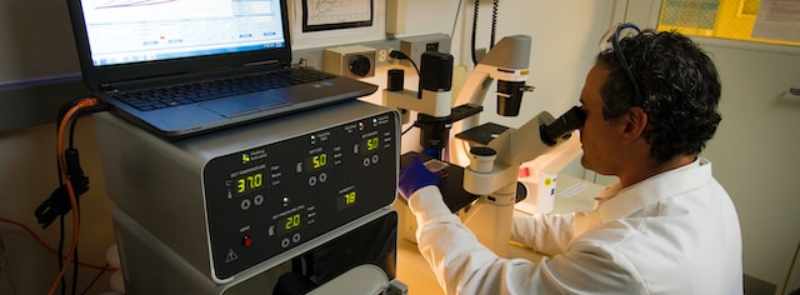
When It Occurs
Every January 14th
Timeline
Days Passed (1135)
# Hashtags
#STIQDay #STIs
STIQ Day in the United Kingdom is an annual observance held on January 14th with the primary aim of raising awareness about the importance of sexual health and encouraging people to get tested for sexually transmitted infections (STIs). The acronym "STIQ" stands for Sexual Health Testing and Information Questionnaire Day, emphasizing the significance of both testing and education around sexual health matters.
Purpose of STIQ Day:
The day was established to address the growing concern about the rates of STIs in the UK and to promote regular sexual health checkups. STIQ Day encourages individuals, particularly those who are sexually active, to reflect on their sexual health and take action by getting tested. Regular STI testing is crucial for early detection and treatment, reducing the risk of transmission, and safeguarding overall health.
Key Objectives:
-
Promote STI Testing: Many STIs are asymptomatic, meaning that people can carry infections without experiencing any symptoms. STIQ Day encourages people to proactively get tested, especially if they have new or multiple sexual partners.
-
Raise Awareness: Educating the public about the different types of STIs, how they are transmitted, and how they can be prevented is a central goal. Awareness campaigns around STIQ Day focus on reducing the stigma associated with sexual health testing and making it a normal part of overall health care.
-
Encourage Open Conversations: Sexual health remains a taboo topic for many people. STIQ Day promotes open and honest conversations about sexual health between partners, friends, and family members. It also encourages people to speak to healthcare professionals without embarrassment or shame.
-
Provide Resources: The day is used to highlight the availability of sexual health services, including where to get tested, how tests are conducted, and what to expect during the process. It also points individuals toward online resources and clinics where confidential testing and support are offered.
Why is STIQ Day Important?
The importance of STIQ Day stems from the fact that STI rates in the UK have been rising over the years, particularly among young people and sexually active adults. Some of the most common STIs include chlamydia, gonorrhea, syphilis, herpes, and HIV. Early detection through testing allows for prompt treatment, preventing complications and the spread of infections to others.
The day is especially important as it reminds people that they might need to get tested even if they don’t have symptoms. This is because many STIs can be silent, with long-term health consequences if left untreated, such as infertility or increased risk of contracting HIV.
Activities and Campaigns:
Various organizations, healthcare providers, and sexual health charities promote STIQ Day through social media campaigns, educational materials, and public service announcements. Some of the activities around the day include:
- Free or Discounted Testing Services: Many clinics and health organizations offer free or discounted STI testing during STIQ Day, making it accessible for more people to get checked.
- Online Awareness Campaigns: Using the hashtag #STIQDay, organizations encourage individuals to share information about sexual health, testing, and personal experiences to help reduce stigma and encourage others to take action.
- Workshops and Seminars: Educational workshops and online webinars are sometimes held to educate people about the importance of regular STI screening and safe sexual practices.
- Collaborations with Influencers: Social media influencers and public figures may participate in campaigns to spread the word about STIQ Day and its significance in a way that resonates with younger audiences.
STI Statistics in the UK:
The UK has seen fluctuating rates of STI diagnoses over the years, with younger adults (particularly those aged 16-24) being the most affected group. According to Public Health England reports, STIs like chlamydia and gonorrhea have remained the most common infections diagnosed.
- Chlamydia: One of the most common STIs, particularly among young people. Chlamydia is often asymptomatic but can cause infertility if left untreated.
- Gonorrhea: Rates of gonorrhea have risen significantly in recent years. Untreated gonorrhea can lead to complications such as pelvic inflammatory disease (PID) and infertility.
- Syphilis: Once considered a disease of the past, syphilis has seen a resurgence, particularly among men who have sex with men (MSM).
- HIV: While the incidence of new HIV infections has decreased due to better prevention methods like PrEP (pre-exposure prophylaxis) and more widespread testing, it remains a major concern for public health.
The Importance of Regular Testing:
STIQ Day promotes the idea that regular sexual health testing should be part of everyone’s routine health care. For sexually active individuals, especially those with new or multiple partners, testing should occur at least once a year or more frequently, depending on risk factors.
Many people delay getting tested due to fear, embarrassment, or misunderstanding about how testing works. However, the testing process is straightforward, confidential, and often free in the UK through the National Health Service (NHS).
How to Get Tested:
There are several ways to get tested for STIs in the UK:
- Sexual Health Clinics: These clinics offer free and confidential testing for a wide range of STIs. You can find your nearest clinic through the NHS website.
- GP Practices: Your local GP can also provide sexual health testing, or refer you to a specialist clinic if necessary.
- Home Testing Kits: Many organizations now offer home testing kits, where you can take a sample (such as a urine test or swab) and send it off to a lab for analysis. Results are usually provided confidentially online or via text.
Conclusion:
STIQ Day is an essential observance in the UK aimed at reducing the rates of STIs through awareness, education, and promoting routine testing. It plays a critical role in demystifying sexual health, encouraging people to prioritize it as part of their general well-being. By normalizing conversations about sexual health and emphasizing the importance of regular testing, STIQ Day seeks to improve overall public health and prevent the long-term consequences of untreated infections.


